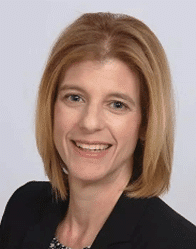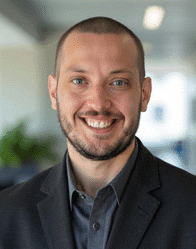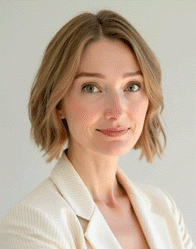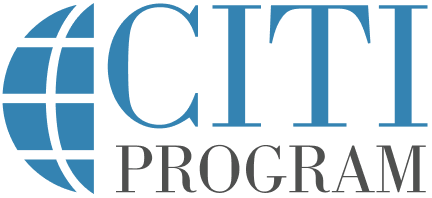Season 3 – Episode 7 – Centering Students Through Undergraduate Research (Part 2)
In this episode, we focus on the evolving landscape of undergraduate research and how campuses can broaden access to these formative experiences.
Podcast Chapters
Click to expand/collapse
To easily navigate through our podcast, simply click on the ☰ icon on the player. This will take you straight to the chapter timestamps, allowing you to jump to specific segments and enjoy the parts you’re most interested in.
- Introduction and Episode Context (00:00:06) Host introduces the podcast, guests, and the focus on undergraduate research.
- Barriers for First-Generation and Underrepresented Students (00:00:54) Discussion of challenges such as financial barriers and lack of awareness for underrepresented students in undergraduate research.
- Addressing Financial Barriers and Increasing Awareness (00:01:33) Examples of funding programs and outreach to help students access research opportunities.
- Defining Effective Undergraduate Research (00:04:05) Exploration of what makes undergraduate research effective and whether it must be tied to labs or formal programs.
- Multiple Entry Points and Flexible Opportunities (00:05:31) Emphasis on diverse ways students can participate in research, including summer programs and community partnerships.
- Undergraduate Research Beyond the Lab (00:07:09) Examples of research in non-lab fields, such as art history, community projects, and international internships.
- Skills and Organic Project Development (00:10:54) Discussion of skills gained through research and how projects can evolve organically.
- Importance of Multiple Entry Points (00:11:25) Highlighting the value of having various ways for students to get involved in research.
- Shifts in Undergraduate Research Over the Past Decade (00:11:56) Overview of changes, including increased focus on workforce readiness and formalizing research in coursework.
- Innovations and Future Directions (00:14:38) Discussion of combining high-impact practices, building community partnerships, and expanding hands-on research opportunities.
- Reimagining Undergraduate Research Experience (00:16:09) Vision for a scaffolded, inclusive research experience with micro-credentials and broad student engagement.
- Micro-Credentialing and Scaffolded Support (00:18:33) Description of a new program offering badges, certificates, and stepwise support for research involvement.
- Practical Steps for Faculty Involvement (00:20:28) Advice for faculty on how to start or deepen their engagement in undergraduate research, including networking and sharing stories.
- Faculty’s Critical Role and Support (00:24:19) Recognition of faculty as essential to undergraduate research and the importance of supporting their efforts.
- Closing and Podcast Information (00:24:50) Final thanks, encouragement to subscribe, and information about further resources and upcoming episodes.
Episode Transcript
Click to expand/collapse
Ed Butch: Welcome to On Campus with CITI Program, the podcast where we explore the complexities of the campus experience with higher education experts and researchers. I’m your host Ed Butch and I’m thrilled to have you with us today. Before we get started, I want to quickly note that this podcast is for educational purposes only and is not designed to provide legal advice or guidance. In addition, the views expressed in this podcast are solely those of our guests.
Welcome back, everyone, as we continue our conversation on undergraduate research. Once again, I’m joined by my cohost for this episode, CITI Program’s Associate Director of Content and Education Alexa McClellan, and our conversation with Dr. Lisa Piazza from the University of Tennessee at Chattanooga.
Alexa McClellan: What about for students who might be first generation or underrepresented?
Dr. Lisa Piazza: Yeah, yeah.
Alexa McClellan: What are the barriers that exist for those students? And how should institutions address those concerns?
Dr. Lisa Piazza: Yeah, that’s a very complex situation that has … We’ve made some strides there. Again, as a first gen student myself, I think one of the barriers is to understand what opportunities exist and what’s out there in terms of support. But one of the barriers is just that, getting out there and connecting with the students so that they’re well aware of, okay, here’s a menu of things that you can do. We want them to get involved in undergrad research, but also the other high impact practices. Study abroad, doing community-based projects.
A huge barrier is the financial piece. I work with lots of different students from different backgrounds. Some single moms, so they’re out there trying to do everything that they need to do to be successful. But a lot of times, it’s the money issue. They can’t commit to undergrad research because they’ve got to work. They’ve got to work after school, they have to work on the weekends. That’s the case with many of our work study students. The work study jobs are phenomenal, they’re just not enough for a student to be able to support themselves, to pay rent. I would say that that is the primary barrier always, it’s the financial more than anything else.
We have created, with other campus partners, all kinds of funding opportunities. We did a Paris research program a couple of years ago and that was open to all students, all levels to try to attract and really connect with those students, again, who maybe did not know about the resources or the opportunities. There was quite a large funding award associated with that so we got some really great students that year. Three of them were supported, I think it was $7500 each, to do that program. They just created phenomenal projects as a result.
But I would say it’s the financial. The financial barrier is what we see mostly. Awareness, and just having the information to know that they can be successful in this is another reason why we’re always trying to be out there, and talking with students, and helping them understand with the opportunities are and how we can help them to achieve those goals.
Ed Butch: Yeah. You’ve given us some amazing background and everything on this, and some of those barriers, and ways they can be addressed. When it comes down to it, what does effective undergraduate research really look like? Does it need to be tied to a lab or a formal program?
Dr. Lisa Piazza: Oh, that’s a really good question. Not necessarily. Undergraduate research, there are lots of entries to this. A lot of faculty on our campus actually build the undergrad research experience into the coursework, into a structured course. That is phenomenal. But that’s not always the case.
It’s always our job to keep thinking about, okay, if they’re not getting this experience within a structured class, and they’re not getting this in terms of just their usual academic trajectory or conversations. We just heard from a number of our summer institute students that there is no conversation about research. The path here is take a class, take the tests, get the grade, and then move on.
Ed Butch: Right, right.
Dr. Lisa Piazza: We’re constantly trying to think of ways to welcome students into a program where there’s time to talk about what is research. What does it look like? What are the pieces? What is research integrity, what does that mean? When we talk about the research process, what does that mean?
I think there are all different kinds of opportunities and ways for students to get involved. That’s precisely why we offer these summer programs. Sometimes students do not have time to do this over the course of the fall and spring semesters, but they could absolutely dive in in summer. That’s why those programs have been quite successful.
A lot of the projects that students will get involved with here in Chattanooga, because there’s a great collaboration between the school, faculty at our school, and community partners. Sometimes that’s what undergrad research looks like, and students are going out doing fieldwork, working with entities, community entities or organizations to do research. That is phenomenal. Those projects are really amazing.
That’s the positive thing about undergrad research is there’s a lot of ways for students to get involved. Which is essential because if it’s only the path of taking a course, again, that’s a barrier. That’s not going to serve all of the students. Yeah. There’s all different kinds of ways that students can do this. And at their own pace, when they decide to do it. Yeah.
Alexa McClellan: I’d love to talk a bit more about that. What does research look like for fields that aren’t traditionally lab-based?
Dr. Lisa Piazza: Yeah, yeah.
Alexa McClellan: You talk about having a background in art history yourself.
Dr. Lisa Piazza: Yeah, I’ll give you my own example here. Last academic year, I had the opportunity to work with a student and one of our librarians who were working on a project, it’s United Hosiery Mills. That was a mill here in town that was making Buster Brown clothing and stuff like that. This student has been working on in special collections, they have this amazing collection of all of these artifacts. Socks, and clothing, and the Buster Brown displays, and all this wonderful stuff. The student was working on archiving all of those physical objects and that took about a year. She did an amazing job.
She was also doing research on the history of the mill, from a sociological perspective and then political perspective. She found some really cool newspaper articles about things that were happening at the mill, and so forth. That’s what her project looks like, that’s what she presented on at the spring conference in April, and she will continue that work. I think the next phase, we’re going to try to use GIS to map out all of the different locations in Chattanooga that this mill impacted. I’m really excited to see how all of that comes together.
In business, just to use an example from one of the Vietnam program students. They will, because it’s a research internship, and they’re actually going to work every day, and getting a sense of what it’s like to work outside of the United States, many of their projects will compare and contrast what the work environments are here and in Vietnam. Those are really fascinating because then we get a sense of how, in some ways, the cultures are really similar or really different, and what’s acceptable in the workplace in terms of having a chat by the water cooler or something like that. Those are really, really phenomenal projects. I think the students have had a really great time just thinking about their experiences and then their experiences here, maybe in a job, and how different in some ways the work environments can be.
We also have had students working on community projects, totally not lab-based at all, but with the local health department and things like that. There’s just such a variety of ways that students can conduct research outside of your traditional STEM fields. They learn so many amazing skills beyond and in addition to of course the research skills. Like my student here, she’s an art history major as well. We don’t have a lot of background with GIS, but we went and did a workshop already. I think we’re going to have definitely a lot of support from the GIS team here on-campus to do that project. But that’s not necessarily something we planned from the beginning, it was an organic way of transitioning to the next phase of the research.
Ed Butch: Yeah. That’s great. More than anything, I think I’m taking away from your last couple of answers there is really just having those multiple entry points-
Dr. Lisa Piazza: Absolutely.
Ed Butch: … is what really makes an undergrad research program effective.
Dr. Lisa Piazza: Sure.
Ed Butch: Yeah, yeah. Definitely. That’s awesome. You’ve been working in this area for a little bit of time now.
Dr. Lisa Piazza: Yes.
Ed Butch: I guess I’m just curious, have you seen the landscape of undergraduate research change over the last, say five to 10 years?
Dr. Lisa Piazza: Yeah. Yeah, that’s a really good question. The biggest not necessarily change, but there’s much more of a push now to really make a strong connection between getting involved and doing undergraduate research, how that’s going to impact the student after. That connection, again, to workforce success is really key now. And really important for us to think about, as folks that are working in this area and trying to help students be successful. I would say that that is a really big push now to very clearly make those connections.
The skillset is a skillset that you will need to be successful in anything you do after you graduate undergrad. If you’re going directly into the workforce, you have such a strong narrative to tell about being in another country for six or eight weeks, having a job there, being really successful, and then rolling into that research and writing a paper, or doing some sort of final project for that. If you’re going into grad school, you’re going to be extremely competitive for grad school because it’s not every undergrad that is going to do undergrad research or study abroad, or these other things. Again, you have a really strong narrative to tell. “Here’s exactly what I did under direction of Dr. Smith. We worked for a year and produced XYZ. I actually got a chance to present at two national conferences and three regional conferences.” There’s a whole host of experiences that the student will be able to put forth for grad school, med school. That the primary push.
I think also, just making sure to the extent that we can, that high impact practices, undergraduate research, these experiences are more formalized within classes. We’re talking about not in great depth, but at least introducing these other types of college experiences and academic experiences to students so that they do have the opportunity to pursue those opportunities if that’s something that they’re interested in. Trying to just embed it as much as possible into the college experience is really key as well.
Ed Butch: Yeah.
Alexa McClellan: Looking ahead then, what are some of the most exciting shifts of innovations that you’re seeing in this space, things that you might see changing?
Dr. Lisa Piazza: Yeah. I would say that combining these high impact practices, which is something that we started to do a couple of years ago. That’s precisely why we run the summer programs because you’re getting a study abroad experience. You’re getting a good number of college credits for doing that. You’re getting research experience. It’s really powerful, we know that from the research, for students to engage in multiple high impact practices. Just continuing that type of program development and those types of opportunities for students, that’s really, really key.
I think moving forward, just that connection to workforce skills and doing a lot more with partnering with community partners, with businesses, with organizations to do a lot more with this hands-on feature of undergrad research. The hands-on feature of this is really, really key. Just moving forward, I would say that building those partnerships and collaborations to expand capacity for this is really important as well.
Ed Butch: I’m going to give you the magic wand now. If you had the opportunity to redesign the entire undergraduate experience with research at the center, what do you think that would look like?
Dr. Lisa Piazza: Oh, wow. That is exciting. We have been thinking about and I’ve designed a program for students that is basically just that. From the beginning of their experience, it’s a scaffolded type of thing. Where the more that they do with undergraduate research, the more that they’re earning along the way. For me ideally, again, undergraduate research, at least the conversation would be everywhere in terms of the culture of how we talk about research.
I would say that giving students the opportunity to do a very, very small project. A lot of students do research papers and this is the norm. But maybe taking that a step beyond and doing some sort of group project. I know that this is happening and it has been happening on all types of different campuses already, but those are the types of experiences that I think are the most exciting for students. When they can work on a project together, maybe help a community entity or community organization to drive that organization forward, it helps students understand the real world implication of doing undergraduate research. I would say that that’s an important focus.
But I think just that engagement, that awareness. That this is something that is for everyone, it welcomes everyone. And certainly something that is going to help you, no matter what you choose to do after the undergrad degree. Just having that exposure and that ability to be able to take advantage of undergrad research if they want to. Not so much the full experience, and that’s something else I’ve tried to do a lot more in this position. When we think about undergraduate research, it’s typically you’re doing research with your faculty mentor, you’re getting a sense of the design and methods, and you’re got your hands in the data and the analysis. Then you present and if you’re lucky, you get to co-publish with your mentor.
But in this new program that we’re planning to launch soon, you can come to a workshop and learn about the process, the research process, and then maybe get a badge or certificate that you know that skill now. The next part of that is actually getting into research. If you’re lucky enough to get selected, you get a badge for that too, because that’s a whole skillset there. Once you get into research and you’re doing your thing, then there’s funding to support you if you want to go out and present your research at a conference. It’s scaffolded so that it’s encouraging students to take that next step, and to actually do this with the support along the way.
Ed Butch: Yeah, almost a micro-credentialing approach.
Dr. Lisa Piazza: Absolutely.
Ed Butch: Yeah.
Dr. Lisa Piazza: Absolutely, absolutely. At the end, students will get a graduation cord and a certification of completion, but that’s the dream is just incorporating undergrad research, high impact practices in general a lot more into the student experience.
Alexa McClellan: Yeah.
Dr. Lisa Piazza: So that you don’t wake up on graduation day and then learn that there’s all these things that they could have done. That’s what we’re really trying to work towards in terms of the awareness piece of what we do.
Alexa McClellan: Yeah. Again, reducing the barrier of entry-
Dr. Lisa Piazza: Yeah, absolutely.
Alexa McClellan: … by getting in smaller, digestible, doable things. Finally, for the faculty who are listening right now, what’s one practical way that they can start or deepen their involvement in student research?
Dr. Lisa Piazza: Sure. I would say it’s from a local perspective. We are constantly sending out information about what we do. We will hold a faculty meet-and-greet at the beginning of the semester because we want to connect with faculty. Every time we connect with faculty, there are great things that come out of those conversations and collaborations. I would say that if you’re at a campus that has an office for undergrad research, explore their services and support. If there’s a barrier for them being able to provide a resource, then they’ll be able to direct you to another office on campus perhaps that can provide that resource.
For faculty who want to get involved with undergrad research, there’s the Council for Undergrad Research. Our institution holds an institutional membership. One of the first things that I’ll do in my welcome messages to faculty is really encourage them to create their membership and it’s totally free to faculty on our campus. But that can give them a lot of really good information, but also the networking so that they can connect with other faculty who are doing some really creative things in the undergrad research space.
There’s also the ability to attend conferences, work groups, and really be part of this culture of undergrad research. It is a niche culture, but there are so many ways that faculty can get involved and be supportive or be supported in their work. That’s something that’s really important to us in our office. We are constantly trying to think of ways, how do we get the word out there that our faculty are doing these amazing projects with students on-campus? I’m constantly bugging our communications folks to write stories. A simple thing of writing a story for the website is a great way to get information out there about what faculty are doing with their students. That’s another thing that faculty can do on their campuses is just reach out and say, “Hey, I think this might be a really great story for the school newsletter or the school website.” We are getting a lot of traction every time we post a story like that, just from other faculty who say, “Oh my gosh, I didn’t know that your office is involved in something like these study abroad programs or this workshop about applying to grad school.”
I would encourage faculty, if they have an office for undergrad research, maybe start there. Definitely become a member of the Council for Undergrad Research, there’s a lot to explore there. And a lot of ways that you can get involved, especially if you’re really interested in creative teaching and learning. It’s a great community.
Alexa McClellan: Yeah. Great. Thank you so much. It’s been such an interesting conversation, listening to you and all the things that you’re doing to support undergraduate research experiences and how integral faculty are in that process.
Dr. Lisa Piazza: Sure, sure. Absolutely. Absolutely. We have nothing without the faculty.
Alexa McClellan: Right.
Dr. Lisa Piazza: That’s one of my … Faculty are driving everything that we do. They are so, so critical to this mission. What we want to do is be there to support everything that they do in terms of undergrad research and really getting students involved. We’ve got phenomenal faculty mentors on our campus, so we’re really lucky in that respect.
Ed Butch: That’s great. Thank you so much for sharing your story and your experiences.
Dr. Lisa Piazza: Awesome.
Ed Butch: I also want to thank Alexa for joining me as cohost for today’s episode. Also, encourage listeners to subscribe to her podcast On Research as well.
Alexa McClellan: That’s great. Thanks so much. I hope people will come and listen as well.
Ed Butch: I invite all of our listeners to visit citiprogram.org to learn more about our courses and webinars on research, ethics, compliance, and higher education. I look forward to bringing you more expert guests to discuss what’s happening on campus.
Special thanks to our Line Producer Evelyn Fornell. Production and distribution support provided by Raymond Longaray and Megan Stuart.
How to Listen and Subscribe to the Podcast
You can find On Campus with CITI Program available from several of the most popular podcast services. Subscribe on your favorite platform to receive updates when episodes are newly released. You can also subscribe to this podcast, by pasting “https://feeds.buzzsprout.com/1896915.rss” into your your podcast apps.
Recent Episodes
-
- Season 3 Episode 6: Centering Students Through Undergraduate Research (Part 1)
- Season 3 Episode 5: Professional Development: A Conversation about Career Transitions
- Season 3 Episode 4: From Dorms to Communities: Fostering Belonging Where Students Live
- Season 3 Episode 3: Learning Beyond the Classroom: Community Engagement in Action
Meet the Guest

Lisa Piazza, PhD – University of Tennessee at Chattanooga
Dr. Lisa M. Piazza is the executive director for undergraduate research at the University of Tennessee at Chattanooga. In this role, she develops intentional undergraduate research programs and initiatives to support student success, and she promotes the benefits of undergraduate research engagement within the campus community and beyond.
Meet the Host

Ed Butch, Host, On Campus Podcast – CITI Program
Ed Butch is the host of the CITI Program’s higher education podcast and the Assistant Director of Content and Education at CITI Program. He focuses on developing content related to higher education policy, compliance, research, and student affairs.
Meet the Guest Co-Host

Alexa McClellan, MA, Host, On Research Podcast – CITI Program
Alexa McClellan is the host of CITI Program’s On Research Podcast. She is the Associate Director of Research Foundations at CITI Program. Alexa focuses on developing content related to academic and clinical research compliance, including human subjects research, animal care and use, responsible conduct of research, and conflict of interests. She has over 17 years of experience working in research administration in higher education.














